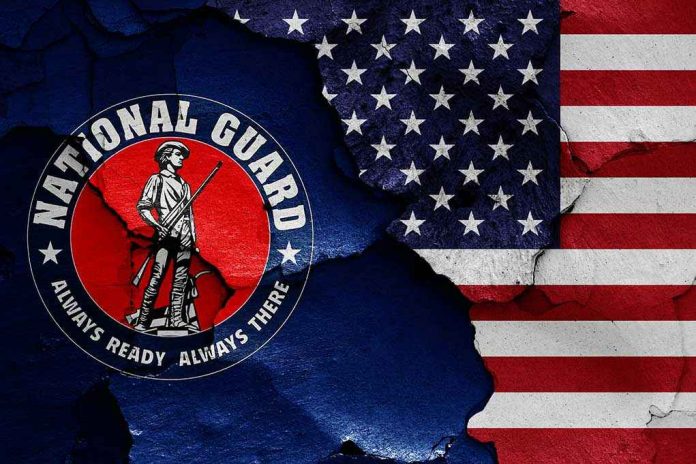
A federal court ruling against Trump’s military deployment in Los Angeles raises questions about presidential authority and the Posse Comitatus Act.
Story Highlights
- Federal judge rules Trump’s use of military in LA violated Posse Comitatus Act.
- Deployment involved California National Guard and U.S. Marines in immigration crackdown.
- Legal debate centers on limits of presidential authority in domestic military use.
- Decision could impact future federal deployments and executive actions.
Federal Court’s Decision on Trump’s Deployment
On September 2, 2025, a federal court ruled that President Donald Trump’s deployment of the California National Guard and U.S. Marines to Los Angeles violated the Posse Comitatus Act. This Act, established in 1878, prevents the use of federal troops for domestic law enforcement. The court found that using military personnel for enforcement activities such as perimeter security and crowd control was unlawful, highlighting the tension between federal immigration enforcement and civil liberties.
The ruling, issued by U.S. District Judge Charles Breyer, was the first major federal court decision in decades to address the Posse Comitatus Act in the immigration enforcement context. The deployment was part of an aggressive immigration crackdown ordered by the Trump administration in June 2025. Legal challenges and public controversy have been escalating since the deployment, which saw military forces involved in operations traditionally reserved for civilian law enforcement.
Legal and Constitutional Implications
The court’s decision underscores the legal and constitutional limits of presidential authority in domestic military use. The Posse Comitatus Act’s intent is to maintain a clear distinction between military and civilian authority, reflecting longstanding American values. The Trump administration argued that the Act did not apply to the federalized National Guard units during this mission, but the court disagreed, ruling that such use of military personnel was unlawful.
California Attorney General Rob Bonta, who led the legal challenge against the deployment, hailed the ruling as a victory for the rule of law. While the Trump administration plans to appeal, the decision may set a precedent limiting future federal use of military forces in domestic operations, particularly in states with sanctuary policies like California.
Impact on Future Presidential Actions
The ruling’s impact extends beyond the immediate halt to military involvement in law enforcement in California. It introduces legal uncertainty for any future executive actions involving military deployments within the United States. The court’s decision could influence federal-state relations, especially in sanctuary jurisdictions, and prompt increased scrutiny over executive power and civil-military boundaries.
Why Trump’s Deployment Of The National Guard In California Was Perfectly Legal https://t.co/0XXy57YvIs
— Watchman for Zion 🇺🇲🇮🇱✝️🎗️⚾ (@yeshuawatchmen1) September 4, 2025
While supporters of the Trump administration argue the deployment was necessary for public safety, legal scholars emphasize the importance of the Posse Comitatus Act in preventing military overreach. The administration’s likely appeal could eventually reach the Supreme Court, further shaping the legal landscape for military use in domestic issues.
Sources:
California Attorney General press release
CalMatters coverage of the ruling





